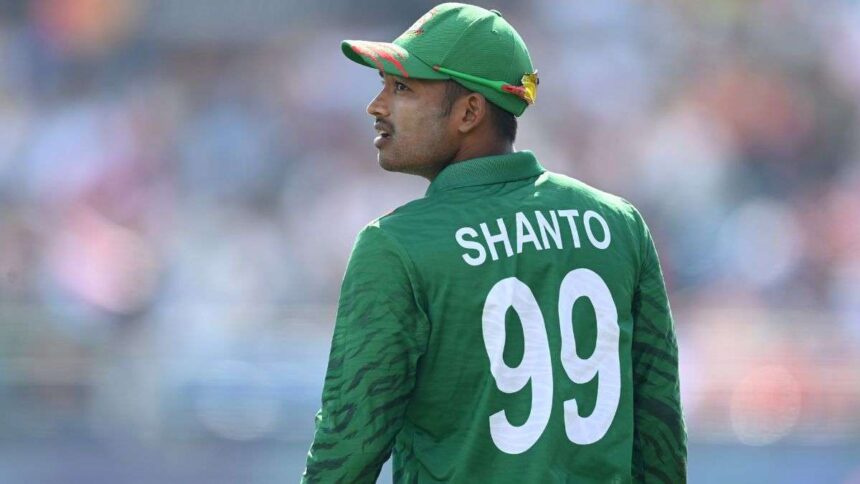Najmul Hossain Shanto Steps Down as T20I Captain: What’s Next for Bangladesh Cricket?
In a significant development for Bangladeshi cricket, Najmul Hossain Shanto has stepped down as the captain of the T20I team. This decision marks a pivotal moment in his career, as he has been at the helm of the T20 format for Bangladesh and has a commendable record, albeit with notable challenges. While Shanto’s departure from T20I leadership might signal a new direction for the team, he is expected to continue leading in the One Day International (ODI) and Test formats, setting the stage for a transition within the team dynamics.
Shanto’s Captaincy Record
During his tenure as T20I captain, Shanto led Bangladesh in 24 matches, garnering 10 wins against 17 losses. His win percentage stands at 41.66%, while the loss percentage is 54.16%. These statistics indicate the challenges he faced in establishing a winning culture in the T20 format, a landscape that demands quick adaptability and strategic prowess.
Shanto’s leadership faced criticism during some series, but he has also had moments of success. One noteworthy achievement was leading the team during various high-stakes series where Bangladesh showcased competitive spirit against stronger teams. Nevertheless, with the evolution of cricket dynamics in recent years, the Bangladesh Cricket Board (BCB) may have decided it was time for a fresh approach in the T20 format.
The Role of the Bangladesh Cricket Board
According to reports by Cricbuzz, Shanto’s decision to resign was communicated to the BCB, which was accepted without any immediate plans to appoint a successor, as there are no T20I matches scheduled in the near future. BCB officials expressed that the decision to forego naming a new captain is a strategic one, allowing the team some breathing room.
Faruque Ahmed, the BCB President, reportedly played a role in convincing Shanto to retain captaincy in the longer formats, acknowledging his potential to lead the team in ODIs and Tests moving forward. This duality in leadership roles reflects the complexities of modern-day cricket where the demands of different formats require distinct skills and strategies.
Litton Das: The Likely Successor
As Shanto steps back from T20 captaincy, Litton Das emerges as the frontrunner to take over the captaincy for the T20I team. Litton’s recent successful leadership in a three-match T20 series against the West Indies, where he led the team to a clean sweep, showcases his capabilities as a captain. His leadership style and performance provide a promising outlook for the T20 format as Bangladesh continues to develop its cricketing identity.
With Litton Das at the helm, there may be an opportunity for a new strategic outlook in T20 cricket, focusing on youth and dynamism, which are crucial for success in the shortest format of the game.
Future Prospects for Bangladesh Cricket
Looking ahead, Shanto is likely to captain the Bangladesh team during the ICC Champions Trophy 2025, where they are grouped with formidable opponents such as India, Pakistan, and New Zealand. This upcoming tournament presents a critical opportunity for Bangladesh to showcase its development and intent in international cricket.
The team will kick off its campaign against India in Dubai on February 20, 2025. This match will not only be significant for Shanto as a captain but also for the broader cricketing context in which Bangladesh is trying to establish itself as a competitive force.
Conclusion
Najmul Hossain Shanto’s decision to resign from T20I captaincy opens a new chapter for both the player and the Bangladesh national team. With emerging leaders like Litton Das poised to take charge, the BCB is clearly focused on evolving its team structure to adapt better to the demands of modern cricket. As Bangladesh approaches the Champions Trophy, the cricketing world will be watching closely to see how these changes affect the team’s performance and strategy.
The transition in captaincy may very well be a turning point for Bangladesh cricket, as it continues to evolve and aim for greater success on the international stage. The leadership changes could foster a renewed sense of purpose and performance, paving the way for future victories and milestones.










